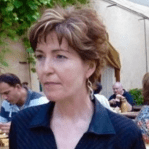
Integrate knowledge holders. Understand power relationships and address imbalances to ensure marginalized groups are heard. Promote transparency in decisions and actions in landscape restoration work. Address governance and ensure transparency in motives and “political visions.”
Also, try to be humble in dealings with local stakeholders, particularly communities and traditional leaders; yet review all knowledge, common practices and traditions with a healthy skepticism. And remember to consider gender and youths in stakeholder platforms.
Those were some key ideas flowing from a workshop for practitioners developing equitable, sustainable landscape approaches hosted by researchers with the Center for International Forestry Research (CIFOR) and Ph.D. candidates.
The workshop – “Operationalizing Landscape Approaches for Nature, Development and Sustainability” held during the Global Landscapes Forum Accra 2019 conference – was crowded with ideas and lived experiences from participants.
All participants had been asked to express what is needed to balance the many and differing development and conservation needs of stakeholders in a shared landscape.
Three Ph.D. candidates conducting research in landscapes in Ghana and Zambia led the event, urging feedback from participants on how they should approach their work during the five-year project: Collaborating to Operationalise Landscape Approaches for Nature, Development and Sustainability (COLANDS). Responses focused on a few key areas: the necessity of land tenure, governance issues, equitable power-sharing, and broad-based decision-making inclusive of all voices, including women and youth.
Freddie Sayi Siangulube – a P.hD. candidate with University of Amsterdam’s Institute for Social Science Research (AISSR) – asked what trade-offs must be addressed to reconcile conflicting landscape goals so as to enable “more winners and fewer losers” in terms of the benefits of a landscape and its resources.
Drawing on experiences of participants, feedback identified important components of stakeholder platforms that enable equitable engagement of critical stakeholders as well as identifying policies that support multi-stakeholder platforms (MSP) processes.
How can marginalized voices and local knowledges be respected, valued and integrated into implementation of a landscape approach, asked Malaika Yanou, also a Ph.D. candidate at AISSR and who, in July-August 2019, completed a scoping study with Siangulube in Zambia’s Kalomo District.
“How can we integrate local knowledge in multi-stakeholder processes,” asked Yanou, who described “fragmented landscapes, fragmented knowledge” in the region. “How do we address power imbalances and ensure that marginalized groups are heard; and how best to organize knowledge co-production processes?”
Addressing power imbalances was a common theme, as participants suggested solving this – and other points, including why certain taboos linger – demands an understanding of historical legacies, power dynamics and livelihood strategies. Some suggested decision-making must be organized at the local stakeholder level to enable governance from an integrated landscape approach perspective.
Siangulube, who is also a Forest Officer with Zambia’s Ministry of Lands and Natural Resources, asked what is it that blocks greater participation by stakeholders in decision making; and what part could MSP play in drawing out more voices in a landscape.
In the Ghanaian context, Community Resource Management Areas (CREMA) could be an important tool for raising local voices, knowledge, and above all, place local communities at the centre of landscape management, said Eric Bayala, also a Ph.D. candidate at AISSR and a COLANDS team member. He has recently started a scoping study in northern Ghana.
“What can integrated landscape approaches bring to the current effort and debate in Ghana on Community Forestry, or Community-based Natural Resource Management in general,” Bayala said.
Ghanaian landscapes are marked by multiple and competing resource interests, from cocoa forests and oil palm belts to shea parklands and pastoral lands of the northern savannah. Widespread mining interests and complex tenure arrangements can undermine development of long-range resource management plans.
Landscape approaches have gained a great deal of attention and are seen as an opportunity to bring a balance to the different development and conservation needs of stakeholders in a shared landscape. COLANDS is expected to close the gap between strong scientific theory about landscape approaches and weak implementation; and capture successful elements of landscape approaches to develop a scalable model for adoption elsewhere.
“Our objective is to understand what people in the landscape want,” said CIFOR researcher James Reed. “We acknowledge that there might be trade-offs and some people may be losing, but by identifying those who lose out we can then develop strategies that enable more inclusive land-use decision making,” added Reed, who also spoke to a media event titled “Landscape and Jurisdictional Approaches to Sustainable Land Management” earlier in the day.
Outcomes from the COLANDS workshop, sponsored by CIFOR and the University of Amsterdam, will feed into the design of future landscape approaches along with other findings by the team.
COLANDS is part of the International Climate Initiative (IKI) and is funded by the German Federal Ministry for the Environment, Nature Conservation and Nuclear Safety (BMU).
Ph.D. research is hosted at the Institute for Social Science Research (AISSR) of the University of Amsterdam.
We want you to share Forests News content, which is licensed under Creative Commons Attribution-NonCommercial-ShareAlike 4.0 International (CC BY-NC-SA 4.0). This means you are free to redistribute our material for non-commercial purposes. All we ask is that you give Forests News appropriate credit and link to the original Forests News content, indicate if changes were made, and distribute your contributions under the same Creative Commons license. You must notify Forests News if you repost, reprint or reuse our materials by contacting forestsnews@cifor-icraf.org.












